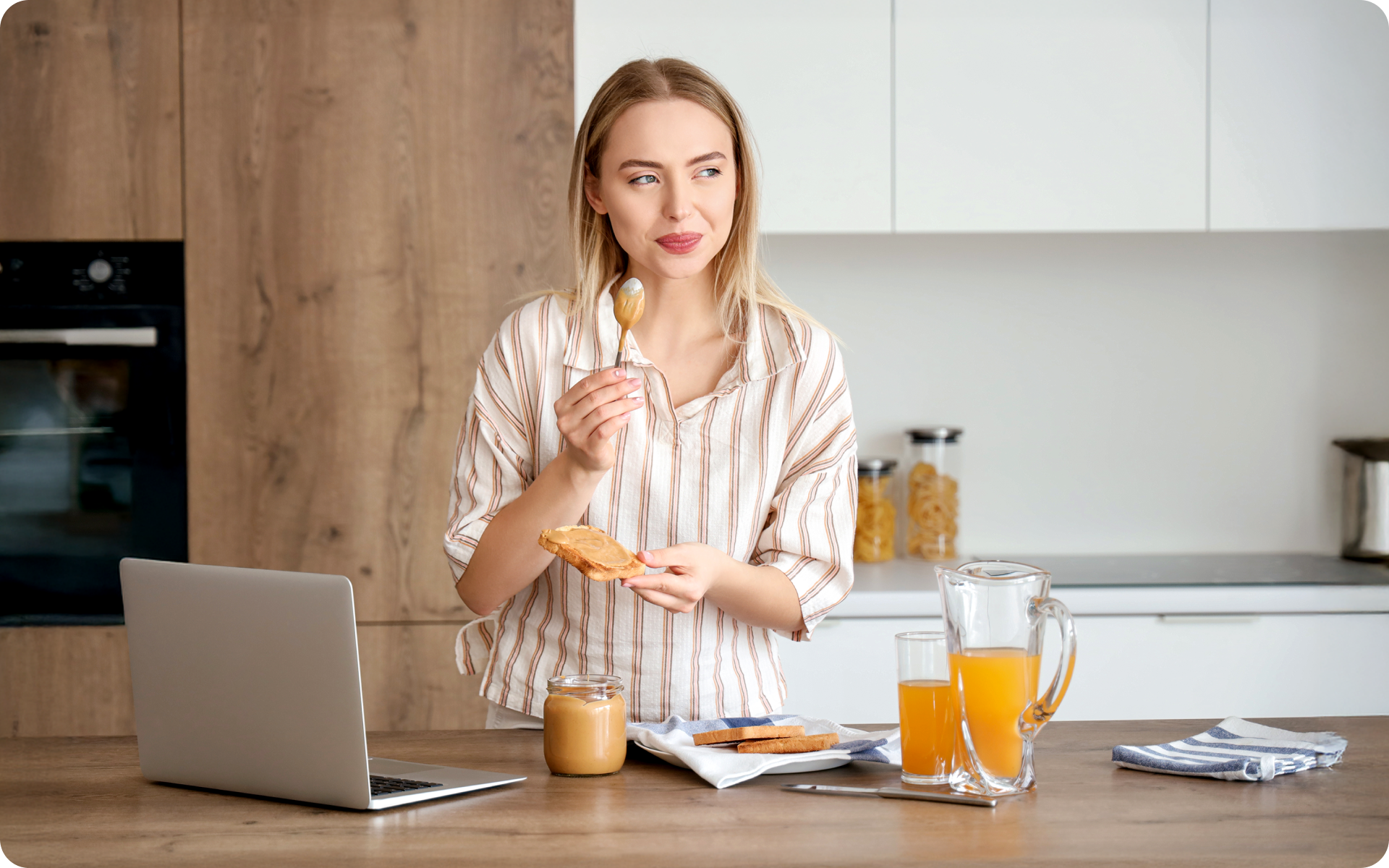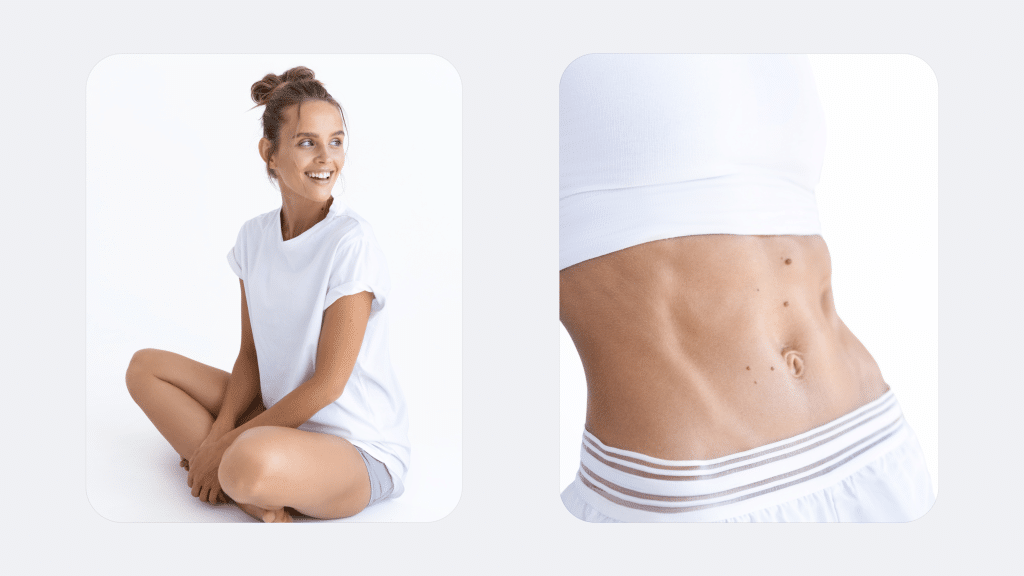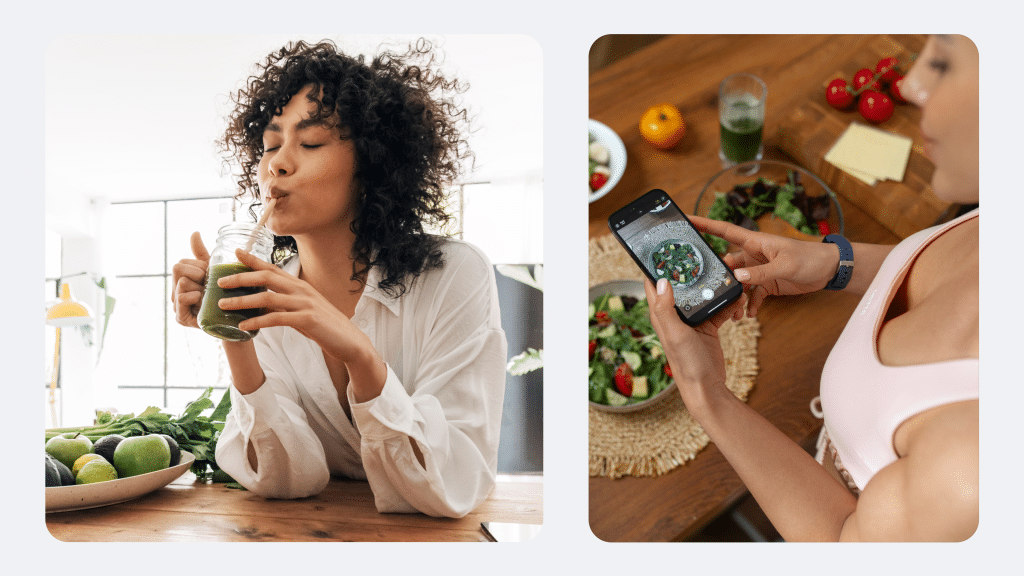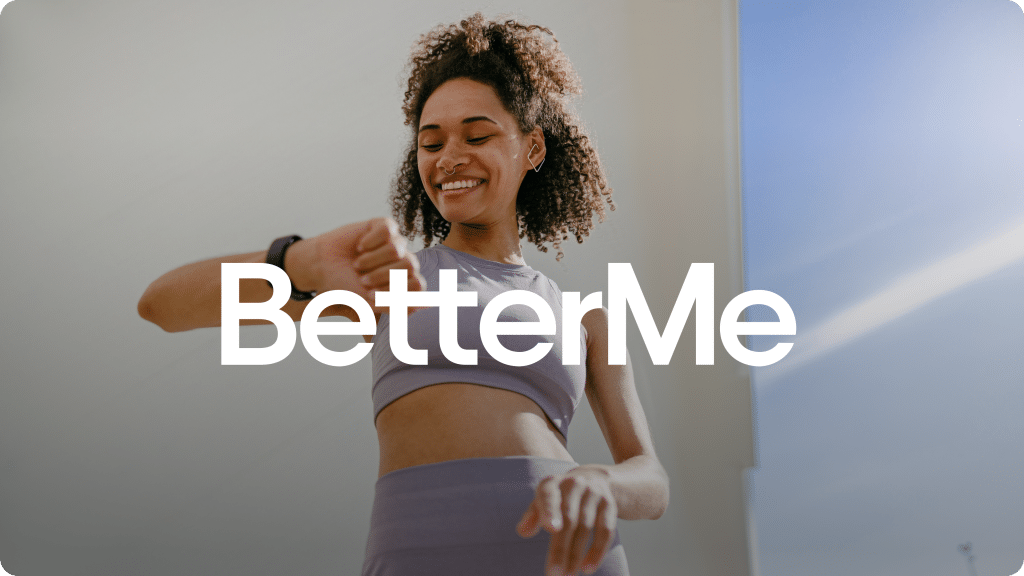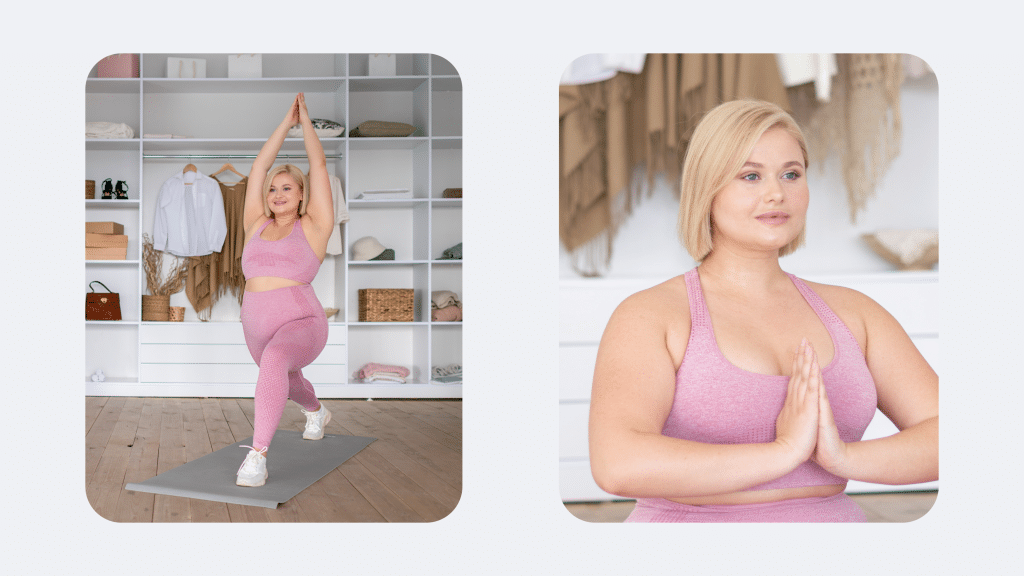Food cravings are a normal part of life. However, sudden intense and uncontrollable urges to indulge in certain foods may be a cause for concern. You may be wondering why you finished the whole jar of peanut butter in record time.
Peanut butter cravings, although common, may be a reason for concern. Do you crave peanut butter even when you’re full? Do you want to eat peanut butter all day long? Well, there are explanations for this, and here are some of them.
What Does Craving Peanut Butter Mean?
Craving for peanut butter may mean several things. Besides the fact that peanut butter tastes fantastic, your body may be trying to tell you something else.
The sudden urge to eat peanut butter may signify that you aren’t meeting your body’s nutritional needs. Your body needs an adequate balance of protein, fats, carbohydrates, and micronutrients daily.
Depending on the activities you perform and your age, sex, and body size, your daily calorie intake may vary. Adult males generally require 2,000 to 3,000 calories per day to maintain a healthy weight, while their female counterparts require 1,600 to 2,400 calories (2). Note that the major sources of calories are proteins, carbohydrates, and fats.
Natural peanut butter is made from peanuts and contains no artificial additives. For every 100 grams of peanuts, there are approximately 567 calories. In addition, peanuts are high in fats (49.2g per 100g), proteins (25.8g per 100g), carbohydrates (16.1 per 100g), and fiber (8.5g per 100g) (5).
Natural peanut butter may contain a little salt, but otherwise usually contains only peanuts. Other types of peanut butter may have added sugars and/or oils.
Craving peanut butter may mean that you’re low on energy and need a boost. In addition, a slight variation in your daily calorie intake may affect your energy levels. To supplement this, you may find yourself emptying a whole jar of peanut butter.
Why Am I Craving Peanut Butter?
You shouldn’t panic if you find yourself craving peanut butter. There are solid reasons why you might have this urge, and some of them are listed below.
Intense sweat sessions, working weight loss tips, lip-smacking recipes come in one package with the BetterMe app. And all of it is at your fingertips, start transforming your life now!
Not Enough Fat in Your Diet
You may crave peanut butter if you aren’t eating enough healthy fat. Most people think fat is bad. On the contrary, your body needs fat to function.
It’s recommended that we get 20-35% of our calories from fat. If you eat 2,000 calories per day, this would be between 44 and 78 grams of fat per day. Eating less fat than that may drive you to experience peanut butter cravings. Peanut butter has a high-fat content of around 50 g per 100 grams, the majority of which are heart-healthy monounsaturated fats.
Low-fat diets can be beneficial when done in moderation. However, if a diet is too low in fat to meet the minimum dietary fat requirements, you may start to crave fat-rich foods. At first, this may be confusing for you as you won’t know what your food cravings mean. You may even find yourself craving peanut butter and jelly.
Not Enough Protein in Your Diet
You need proteins to build and maintain your muscles. The recommended dietary allowance (RDA) for protein is 0.8 grams of protein per kilogram of body weight.
This is enough to meet your basic nutritional requirements. You may need more, depending on your body composition and the activities you engage in.
Peanut butter is rich in protein. If your daily protein requirements aren’t met, you may crave peanut butter to fill this void.
Read More: Is Peanut Butter Healthy for Weight Loss?
Not Enough Calories in Your Diet
All weight loss programs advocate for reduced calorie intake. Some very low-calorie diets involve eating a maximum of 800 calories per day. This is a far cry from the average recommended calorie intake of 2,000 for women and 2,500 for men. While very low-calorie diets may result in weight loss, they can also be detrimental to your overall well-being.
Lack of calories in your diet may make you crave peanut butter as it is a rich source of calories. Peanut butter is also rich in carbohydrates (22.3 g/100 grams), which are an important source of energy.
Poor eating habits and not eating enough can also lead to low calorie consumption. For example, if you eat a large meal in the morning then starve yourself for the rest of the day, by the afternoon you may find yourself craving peanut butter because your energy levels have dwindled, and you need to replenish.
Stress
When you’re stressed, your body often craves food that’s high in calories and rich in fats and protein. Peanut butter is an excellent example of such a food. Stress can cause overeating and food cravings.
When you’re stressed, your body releases more cortisol and other hormones that may increase appetite or specific cravings for sweet or fatty foods.
Is There a Downside to Eating Peanut Butter?
While peanut butter has many health benefits, there are potential downsides to consider, particularly if you consume it in excess:
- High-Calorie Content: Peanut butter is calorie-dense, with approximately 190 calories per two-tablespoon serving (11). Consuming large amounts without accounting for these calories can contribute to weight gain. It’s best to enjoy it in moderation.
- Added Sugars and Fats: Many commercial peanut butter brands contain added sugars, salt, and fats to improve taste and texture (12). These additives may diminish some of peanut butter’s health benefits. Be mindful of which kind you purchase to ensure there are no health pitfalls.
- Allergies: Peanut allergies are common and can be severe. For individuals with peanut allergies, even a small amount of peanut butter can trigger life-threatening reactions, such as anaphylaxis. It’s imperative for those with such allergies to avoid peanut butter completely and be mindful of cross-contamination.
- Aflatoxin Contamination: Peanuts can be contaminated with aflatoxins, toxins produced by molds that grow on crops stored in warm, humid conditions. Aflatoxins are carcinogenic and can pose a health risk if consumed in large amounts over time (13). Regulatory bodies monitor aflatoxin levels in food, so you don’t need to worry about this too much, but you should keep an eye out for any recalls of products.
- Oxalates: Peanuts contain oxalates, which can contribute to the formation of kidney stones in susceptible individuals (14). People with a history of kidney stones may need to limit their intake of high-oxalate foods, including peanut butter.
Potential for Overconsumption: Peanut butter is tasty and can easily be overconsumed. Eating large quantities can quickly add up to significant calorie intake, leading to weight gain and related health issues.
Is it Bad to Crave Peanut Butter All the Time?
Eating peanut butter is not bad. This delightful nutty spread is irresistible, so you may find yourself eating it quite often. Peanut butter is healthy, and you can eat it every day.
However, too much of anything can be harmful, and this also applies to peanut butter. You may not be able to help craving peanut butter, but you can control how much you eat.
Peanut butter is a calorie-dense food, so it’s important to stick to the recommended serving size of 2 tablespoons. It also may be better to choose natural peanut butter or specific brands that don’t contain added sugars.
Here are some disadvantages of overeating peanut butter:
Allergic Reactions
Allergic reactions to peanuts are common. However, it’s still not clear why peanuts trigger such a reaction. If you’re allergic to peanuts, eating peanut butter may lead to your body mistakenly identifying peanuts as a harmful substance. Your natural defenses can overreact and cause a severe response.
Symptoms of such an allergic reaction include a runny nose, itchy eyes, and stomach ache. You may even develop hives or anaphylaxis in severe cases. If you have a peanut allergy, you should avoid peanut butter.
Too Much Peanut Butter May Prevent You from Hitting Your Weight Loss Goals
Peanut butter is high in calories and fat, the very things you may be trying to avoid on your weight loss journey.
It should be noted that eating a moderate amount of peanut butter is okay as it’s a rich source of proteins and fiber that promote a feeling of fullness. You tend to feel fuller for longer if you eat a meal that has peanut butter in it.
However, too much of it increases your overall fats and calorie intake, which affects your weight loss goals. Stick to the recommended serving size of 2 tablespoons and be mindful of your overall diet and energy intake.
What Does Your Body Need If You’re Craving Peanut Butter?
Why do we get food cravings in the first place? Sometimes cravings are your body’s way of communicating that something is lacking. Much as you try to maintain a healthy diet with a balance of all nutrients, there could be something missing.
For example, you may wake up craving a peanut butter and apple wrap. This is a delicious breakfast idea, but the thought of it didn’t just crop up out of nowhere. Your body may be trying to tell you something.
You could be craving peanut butter because you’re low on fat, protein, or energy. Stress can also be a reason why you’re suddenly craving peanut butter and banana toast.
If you’re a vegan, craving peanut butter may mean that your body is low on protein. Luckily, there are ways to help you fight intense peanut butter cravings.
How to Deal with Food Cravings Such As Peanut Butter
Here are some practical tips to help you tame your peanut butter cravings:
Add More Fat to Your Diet
Although it’s great for your weight loss journey, a low-fat diet can trigger peanut butter cravings. Adding healthy fats to your diet won’t make you fat. In fact, adding these fats to your diet will help you feel more satisfied after a meal, thereby reducing hunger and promoting weight loss.
Polyunsaturated fats and monounsaturated fats, such as those that are found in peanuts, are healthy fats. When they replace saturated fats in the diet, both of these fats can help lower cholesterol.
Here are some tips to help you add healthy fats to your diet:
Cook Your Meals with Fat
Steamed vegetables are okay, but they could be better. Add some fat to your meals. You only need to ensure that you’re using heart-healthy cooking fats and oils.
A good suggestion is Canola oil or olive oil which are rich in monounsaturated fats. To beat your cravings, you can even use peanut oil for cooking or dressing your salads.
Vegetable oils such as those from sunflower, sesame seeds, and corn are rich in polyunsaturated fats. In addition, oils such as flaxseed oil are rich in omega-3 fatty acids, which may help lower triglycerides.
Try to limit saturated fats, such as those from meat and dairy products, to below 10% of your calorie intake, or even less if recommended by your healthcare provider. (15) Avoid artificial trans fats completely, which are now banned in many countries including the United States.
Embrace Products with Fat-Rich Ingredients
It may be time you ditched the low-fat milk for whole milk with full-fat benefits. You can also consider eating foods rich in healthy fats, such as avocados. Avocados are a rich source of monounsaturated fatty acids with half an avocado containing approximately 6.7g of these acids (3).
Whether you’re looking to simply pep up your fitness routine, jazz up your diet with mouth-watering low-calorie recipes or want to get your act together and significantly drop that number on your scale – BetterMe app has got you covered! Improve your body and revamp your life with us!
Increase Your Protein Intake
Protein deficiency in your body may make you crave peanut butter. Proteins are responsible for building your muscles and body tissues.
When your protein intake is too low to meet your body’s demands, you may start to crave protein-rich foods such as peanut butter.
In addition to having such cravings, a lack of protein in your body may also cause skin problems such as depigmentation (6). It can also make your hair dull and brittle and your nails break easily.
To curb this, you need to up your protein intake. Here are two tips to help you increase your protein intake:
Consider Protein-Rich Snacks
Eating protein-rich snacks between meals is a great way to improve your protein intake. Snacks such as a Greek yogurt parfait make excellent protein-rich snacks.
Greek yogurt is tasty and rich in protein, with an impressive 20 grams of protein per 200-gram serving (4, 16). Other protein-rich snacks include hard-boiled eggs, hummus, and of course, peanut butter.
Choose to Eat Your Protein First
When eating, start with your proteins first before you move on to other items on your plate. Proteins stimulate peptide YY (PYY) production, a hormone that makes you feel full, which can help to decrease your overall food intake (1).
Read More: Why Am I Craving Chocolate? The Reasons Beyond the Sweet Tooth and How to Fix It
Avoid Stress
A change in diet can only do so much to help you tame your peanut butter cravings. If you don’t de-stress, you may still crave peanut butter, even with a changed diet.
So, for as long as you are stressed, you may always crave food, and more specifically, comfort foods such as peanut butter.
Here are some tips to help you distress and conquer your insatiable hunger for peanut butter:
Exercise
Exercise is an excellent way to relax your mind and body. It serves to improve your mood and keep you fit at the same time. A brisk walk around the park will help clear your mind and reduce stress.
Meditate
Sometimes, all you need to do is to take a break from your busy schedule and relax. Meditation and yoga are excellent ways to relax and clear your mind. You’ll also get a chance to reflect and think about other issues that are different from the ones that are stressing you out. Any other forms of self-care that you find helpful will also work.
You need to be attentive to how your body behaves. If you notice anything unusual, such as weird cravings, pay attention, as this may be your body’s way of communicating with you.
FAQs
Why do I eat a spoonful of peanut butter?
Eating a spoonful of peanut butter can be motivated by several factors:
- Nutritional Value: Peanut butter is nutrient-dense and a good source of protein, healthy fats, fiber, and essential vitamins and minerals. A single spoonful can deliver a substantial amount of calories, which makes it a convenient and efficient energy source.
- Satiety: Due to its high protein and fat content, peanut butter can help you feel full and satisfied, reducing the urge to snack on less healthy options. This satiety effect is beneficial for those who are looking to manage their weight or maintain stable energy levels throughout the day.
- Taste and Texture: Peanut butter has a unique taste and creamy texture that many people find enjoyable. This sensory pleasure can make it a go-to comfort food, providing emotional satisfaction and a sense of well-being.
- Convenience: Peanut butter is readily available and is easy to store and consume, which makes it a convenient snack for those with busy schedules. Its long shelf life and versatility in various recipes add to its appeal.
- Health Benefits: Regular consumption of peanut butter in moderation can contribute to a balanced diet. It’s a good source of niacin, vitamin E, magnesium, and antioxidants, which play roles in maintaining overall health (5).
However, it’s important to choose natural peanut butter without added sugars to maximize the health benefits. Moderation is also key, as excessive consumption can contribute to weight gain due to its high calorie content.
What happens to your body when you eat peanut butter every day?
Eating peanut butter every day in moderation can provide various health benefits due to its rich nutrient profile. It contains healthy fats, protein, fiber, vitamins, and minerals, which can support heart health, muscle maintenance, and digestion. The healthy fats in peanut butter, such as monounsaturated and polyunsaturated fats, can help reduce bad cholesterol levels and improve cardiovascular health. However, consuming excessive amounts can contribute to weight gain due to its high calorie content. Therefore, it’s important to enjoy peanut butter as part of a balanced diet.
Why do I feel so good after eating peanut butter?
Feeling good after eating peanut butter can be attributed to several factors:
- Nutritional Content: Peanut butter is a rich source of healthy fats, protein, and fiber, which contribute to stable blood sugar levels and prolonged energy release. This can prevent energy crashes and keep you feeling satiated for longer periods, which leads to a general sense of well-being (8).
- Serotonin Production: Peanut butter contains tryptophan, an amino acid the body uses to produce serotonin, a neurotransmitter that regulates mood, appetite, and sleep (9). Increased serotonin levels can enhance mood and contribute to feelings of happiness and relaxation.
- Healthy Fats: The monounsaturated and polyunsaturated fats in peanut butter are beneficial for brain health. These fats support the structure of brain cells and are involved in neurotransmitter function, which can influence mood and cognitive function positively(5).
- Magnesium Content: Peanut butter is an excellent source of magnesium, a mineral that plays a role in more than 300 biochemical reactions in the body (5). Magnesium helps regulate mood and reduce anxiety and stress, contributing to a sense of calm and well-being.
- Comfort Food: The taste and texture of peanut butter can provide sensory pleasure and comfort, which can have psychological benefits. Many people associate peanut butter with positive memories or comforting experiences, which can enhance your mood.
- Blood Sugar Regulation: Consuming peanut butter with carbohydrates can slow down the absorption of sugar into the bloodstream, preventing spikes and crashes in blood sugar levels (10). This stable blood sugar level can help maintain consistent energy levels and prevent mood swings.
The Bottom Line
Ultimately, while peanut butter offers numerous health benefits, it’s important to consume it mindfully.
DISCLAIMER:
This article is intended for general informational purposes only and does not serve to address individual circumstances. It is not a substitute for professional advice or help and should not be relied on for making any kind of decision-making. Any action taken as a direct or indirect result of the information in this article is entirely at your own risk and is your sole responsibility.
BetterMe, its content staff, and its medical advisors accept no responsibility for inaccuracies, errors, misstatements, inconsistencies, or omissions and specifically disclaim any liability, loss or risk, personal, professional or otherwise, which may be incurred as a consequence, directly or indirectly, of the use and/or application of any content.
You should always seek the advice of your physician or other qualified health provider with any questions you may have regarding a medical condition or your specific situation. Never disregard professional medical advice or delay seeking it because of BetterMe content. If you suspect or think you may have a medical emergency, call your doctor.
SOURCES:
- Critical Role of peptide YY in protein (2006, sciencedirect.com)
- Diet And Health: Implications for Reducing Chronic Disease Risk (1989, www.ncbi.nlm.nih.gov)
- Hass avocado composition and potential health effects (2013, ncbi.nlm.nih.gov)
- Low, moderate, or high protein yogurt snacks on appetite control and subsequent eating in healthy women (2013, pubmed.ncbi.nlm.nih.gov)
- Peanuts as functional food: a review (2016, ncbi.nlm.nih.gov)
- Skin in protein-energy malnutrition (1987, pubmed.ncbi.nlm.nih.gov)
- Trans fats: Sources, health risks and alternative approach (2011, ncbi.nlm.nih.gov)
- Fight Hunger With Powerful Nutrition (2023, nationalpeanutboard.org)
- Foods High in Tryptophan (2023, webmd.com)
- Carbohydrates and Blood Sugar (n.d., nutritionsource.hsph.harvard.edu)
- Peanut butter, smooth style, with salt (2019, fdc.nal.usda.gov)
- Plant-based butter like spreads (2022, sciencedirect.com)
- Aflatoxins (n.d., cancer.gov)
- Eating, Diet, & Nutrition for Kidney Stones (n.d., niddk.nih.gov)
- Facts about saturated fats (n.d., medlineplus.gov)
- Yogurt, Greek, plain, lowfat (2019, fdc.nal.usda.gov)
